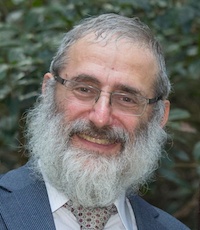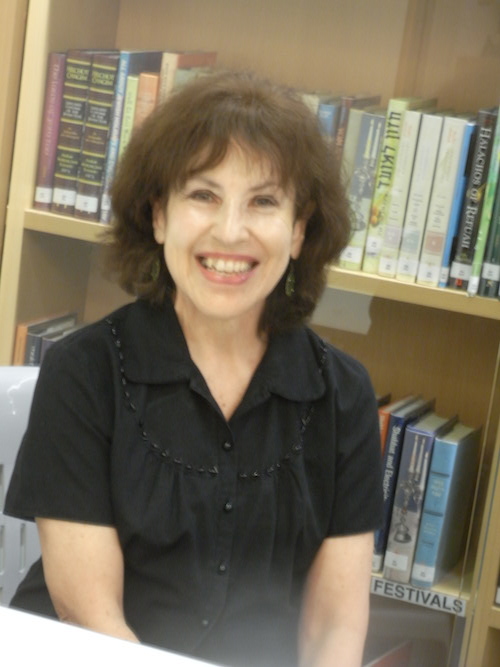What's In It For Me?
01/07/2016 08:29:04 AM
 |
||||||||||||
 |
 |
 |
 |
|||||||||
 Rabbi's Message Rabbi's MessageWhat's In It For Me? Dear [first_name], Everyone is familiar with the terms sheliach or sheluchim. They refer to those who have been sent on a mission, often a mission of great national or religious importance. The most famous Biblical use of the term can be traced to this week’s parasha, Shelach - literally “Send!”. It refers to the twelve men who were sent by Moses to reconnoitre the Land of Canaan ahead of the Israelite conquest. Although the mission was hardly successful, much can be learnt from it in terms of how to successfully accomplish an assignment while avoiding the common pitfalls. Here’s one important lesson: Among the group of twelve, ten returned with a pessimistic assessment of the conquest; it was, they said, Mission Impossible! (In doing so, they seriously overstepped their authority. It was not their role to give an opinion on the possibility of conquest. That had already been given by G-d who had promised that the Israelites would successfully conquer the Land. All that was sought was a reconnaissance of the Land so that General Moses could assess the best way of entering and conquering it.) Two, Joshua and Caleb, maintained the integrity of the mission, assuring the Israelites that they would conquer it as promised by G-d. Caleb went even further. He tried to silence the ten nay-sayers so that they would desist from discouraging the people. “And Caleb silenced all the people… and he said, “we shall surely go up and conquer it, we can certainly do it!” Assuming that we are on the side of the goodies, and are big Caleb fans, we should at this point be saying, “Good onya Caleb; you tell ‘em!” But we’d be wrong. You see something is awfully wrong here. If you look at the preceding verses where the spies describe the land before they were interrupted by Caleb, you will find that they haven’t said anything bad yet! They have not yet spoken of the impossibility of conquest, of how the Israelites will be swallowed up if they attempt to conquer the land. Those negative and pessimist words come later - AFTER Caleb’s attempts to silence them. For now, all they have said is 1) it’s a land “flowing with milk and honey” and 2) the people are big and strong, the cities large and well fortified. What’s wrong with that? They are reporting on what they were told to do, reconnoitre the land. Why is Caleb getting so hot under the collar at this stage? The answer to this, explains the Lubavitcher Rebbe, lies in a careful analysis of the mission as instructed to them by Moses. Moses FIRST asks them to check out the strength of the land and its inhabitants. This information was critical for the success of the mission, the conquest of the land - General Moses had to allocate soldiers and resources commensurate with the strength of land and its inhabitants. In one part of the land more military resources would be necessary, in another less. Only AFTER does Moses ask them to investigate the benefit and the reward of the land and its fruit - “is it good or bad…is it fat or lean…” What gives? Explains the Lubavitcher Rebbe: When a person sets out on a mission, especially if his aim is to be a shliach of G-d and of Moses, his first and primary interest must be to do whatever necessary to get the job done. Only later can he consider the benefits and rewards. The spies subverted the mission by reversing the order. Moses asked them about the strength of the people and land so that they could conquer it, and only subsequently about the quality of the land and fruit - the “reward” of the conquest. They first investigated the reward - the quality of the land and its fruit. Only subsequently were they concerned with the strength of the land and its inhabitants - so absolutely critical to the mission of conquest. When Caleb heard that their focus was more on Reward than on Mission, he knew that this could lead to no good and he silenced them. What do we learn from this? A person who determines the value of a Divine Mission based on what he will get out of it, will be constantly doing a cost-benefit analysis. Is the effort I’m putting in really worth the reward? Is the chance of success worth the risk of failure? You cannot approach G-d’s Will this way. The performance of G-d’s Will - which provides an opportunity to commune with the Divine - is above and beyond any benefit or risk that accrues from it. It must be performed without thought of earthly reward. Only so, will the mission be accomplished. Only so, will you be entitled to carry the honourable title, Sheliach. This is a powerful lesson, relevant to us all. We are all Sheluchim. We have all been sent to this world to fulfil G-d’s Will - expressed through the performance of his holy mitzvot. People often ask, “What is the benefit of Kashrus”? And the response is often, “Well, it’s a healthy alternative. After all, twelve million Americans eat only or predominantly kosher. That’s more than twice the number of American Jews! Why do non-Jews eat kosher? Because they consider it healthy!” This may be true. But even if it is, it’s a focus on the reward of Kashrus, and that’s not the reason for observing it. Because if it is, kashrus will be constantly at the mercy of the most recent health fad. We will constantly be asking - is kosher consistent with the latest food pyramid? No, we don’t keep kosher because of the health “reward” but because G-d asked us to sanctify ourselves by eating only certain foods. The same is true regarding circumcision. Studies have shown that the incidence of cervical cancer is lower among those whose partners have been circumcised. That’s wonderful, but as we know medical research is in a state of constant flux. Who knows what tomorrow’s study will come up with? We circumcise our children not because of the health benefit to their partners. We circumcise our children because it’s integral to our mission that we enter them into Abraham’s covenant. And Shabbos. A wonderful institution. People are often drawn to Shabbos because it keeps the family together and (hopefully) away from their iPhones and other distracting technology at least once a week. That may be true - but again this is focussing on the reward of Shabbos. If that’s the reason for keeping Shabbos, what does a person who has no family do? What reason is there for her to keep Shabbos? No, we keep Shabbos because its part of our Divine mission - it reminds us that G-d created the world and that He, not us, is its true Master. In truth there are many, many material rewards for observance of the Mitzvot. These are wonderful beyond imagination. But as wonderful as they are, we must keep in mind that they are incidental to the Mitzvot themselves. The real reason to keep a mitzvah is because it forges a connection between ourselves and G-d. And what greater reward could there be than connection with G-d! And so we have one of the eternal lessons of our parasha. To be entitled to carry the title shliach, we must focus on our mission, and let the reward take care of itself. With best wishes from the Rebbetzen and all of us at South Head Rabbi Benzion Milecki OAM  President's Message President's MessageStaff Changes In my first message to you I explained that our financial position had deteriorated and that we needed to act quickly to reduce our costs. That has been a top priority for me, our Treasurer Jack Fisher, the Rabbi and the rest of the Board. Our other key priority is to stabilise and then grow our membership base. I wish to tell you about the staffing changes at South Head that will assist us in achieving our objectives. We have engaged David Levenson as our new Finance Manager. David is a CPA qualified accountant with 20 years of experience working mainly in the superannuation and finance industry. He joined us last week. David is responsible for all administrative activities including finance, accounting, IT, compliance, security and maintenance of the synagogue building and assets. He reports to our Treasurer. David and his family live in our area and will attend our services regularly. If you see David around please be sure to introduce yourself and make yourself known to him. Brian Rosmarin has been our Chief Operation Officer for the past 10 years. During this time, he has served with the greatest honesty and integrity and provided valuable and loyal service to the synagogue and its members. With his engaging and personable manner, he has endeared himself to the Rabbi, successive Boards of Management, our staff and congregants. However, to reduce costs and improve efficiency, we decided to combine the roles of general management and accounting, so making the position of Chief Operating Office redundant. Brian will continue to assist David during the handover period and will remain closely involved in synagogue administration in the lead-up to, and through, the High Holiday period. We express our deep appreciation to Brian for his many years of devoted service to our shule and community and wish him well for the future. Read More South Head Speakers Forum Art as Tefilla & Tefilla as Art Youth Crew We're Here For You! We're very excited for Bless the Kids Shabbat this week. Come to Shule on Shabbat morning to receive a blessing and a treat from the Rabbi and to create a very exciting edible craft! We are also gearing up for Camp Shalom next week. We have very exciting activities, trips and adventures planned for your children. We guarantee you that they will have a very exciting and rewarding winter experience with us. We have lots of fun planned for the teenagers too! We will be holding our monthly CTeen movie night and TGIS Friday night Shabbat meal next week. Watch this space for more details. Wishing you and your family Shabbat Shalom, For all information on upcoming youth events please contact us on 9371 7300 ext 3 or 0412 482 770 or youth@southhead.org How To Publish A Newspaper Mr. Alter Volner
Parasha Sheet Parashat Shelach
Q. Moshe handpicked the spies. The Torah describes these men as men of wisdom and spiritual stature. These were men of faith and understanding. They were righteous men and wise men. How could such people commit such an error? Read more  Recommended Library Reading Recommended Library ReadingThe Art of Jewish Prayer THE ART OF JEWISH PRAYER, by Yitzchok Kirzner, with Lisa Aiken. Rabbi Kirzner has produced a refreshing, relevant and invigorating book on prayer. He tries to answer the many questions that we have on prayer and praying. How should I pray? How can I pray with proper concentration and understanding of the prayers? The author discusses why we are praying and explains what we are actually saying in our prayers. He explains that there are many layers of meaning in our basic daily prayers and reveals stimulating insights which make the prayers come alive. Shabbat Shalom, Communal Events Support The Community!
|
|
666 Old South Head Rd Rose Bay, NSW 2029 (02) 9371 7300 |
HA'AZINU
Rose Bay, NSW 2029
(02) 9371 7300









